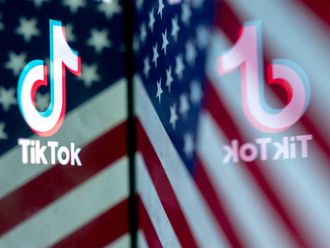Washington: The baristas were playing music from Spotify over the speakers on Friday, as they often do, when a Duke University official walked in. Larry Moneta, the vice-president for student affairs, waited for his usual order from the campus coffee shop — a hot tea and vegan muffin, according to Indy Week. But the vulgar rap song he heard on the speakers bothered him.
“Get paid ... get paid,” Young Dolph raps in the song, using the N-word. “Whatever you do, just make sure you get paid.”
The baristas did get paid — severance checks.
The two baristas on duty, Britni Brown and Kevin Simmons, told Indy Week, an alternative weekly in Durham, North Carolina, that their contracts were terminated after Moneta complained to the director of dining services about the profane-filled song.
Moneta said in a statement to the News & Observer and the Duke Chronicle on Tuesday that he was “shocked” to hear lyrics that he said were “quite inappropriate for a working environment that serves children among others.” He said he was particularly troubled by the line in the song that goes “I ... her up real good,” using an expletive.
He said it was the coffee chain’s choice, not his, to fire the employees.
“The employees who chose to play the song in a business establishment on the Duke campus made a poor decision which was conveyed to” the coffee shop management, Moneta wrote in the statement. “How they responded to the employees’ behaviour was solely at their discretion.”
The owner of the Joe Van Gogh coffee chain, Robbie Roberts, released a statement to The Washington Post on Wednesday apologising to employees, customers and the community for how the business handled the situation.
“We attempted to understand Duke’s position in this case, but we should have taken a different approach in making personnel decisions,” Roberts said. “As the owner of the business, I take full responsibility for Joe Van Gogh’s actions. I apologise to all of the people directly involved and those who have been touched or offended, of which there are many. We are taking steps to remedy this matter, but all company personnel issues are private and will remain private.”
The firings prompted students and coffee shop employees to protest outside the Joe Van Gogh on Duke’s campus Wednesday, according to the Charlotte Observer. On speakers, they blasted the rap song that had upset the university official. The rapper, Young Dolph, also took to Twitter to condemn the firings, saying the vice president “was trying to teach the students how to be selfish I guess.”
On that day last week, Brown, the barista, was working the register at the coffee shop and was in charge of running the playlist, which was curated by Spotify. Brown told Indy Week that Moneta approached her and told her the song was inappropriate.
She immediately turned off the song, apologised for offending him, and offered to give him his muffin free of charge, she told Indy Week. He refused, insisting that she ring him up for it.
Simmons, the other barista on duty, was making drinks when he noticed Moneta’s exchange with Brown. A few minutes after Moneta left, Brown said she received a call from the coffee shop owner, saying the university’s director of dining services had just mentioned the incident involving the song.
Brown accepted responsibility and apologised to the owner. But on Monday, Brown and Simmons were called into the coffee shop’s office and asked to resign, they told Indy Week, which cited an audio recording of the meeting.
A human resources worker with coffee shop told the baristas they had received a call from the director of dining services, Robert Coffey, who said Moneta had complained about the “vulgar music.”
“Duke University has instructed us to terminate the [services of] employees that were working that day,” the human resources worker said, offering them severance.
In his statement to the Chronicle and News & Observer, Moneta confirmed that he expressed his concerns to the staff, “with whom I’ve always had a cordial relationship.”
“I then contacted the director of Duke Dining to express my concerns and that was the end of my involvement,” Moneta wrote.
Coffey did not respond to a request for comment from The Post.
The baristas said human resources did not cite any other complaints about their workplace conduct. Brown said she felt it was “not fair” for the coffee shop to fire Simmons, who had no control over the music that day. Brown is African American, and Simmons is white. “I feel like you guys were trying to cover it up as to make it not look discriminatory for firing a person of colour,” she told human resources officials.
Brown also said she did not know of any policies regarding the type of music played in the coffee shop.
Indy Week wrote that the firing sheds light on the “precarious relationship between the university and its contracted employees, who are not afforded the same benefits and protections as Duke’s full-time employees, but whose employers are not in a position to defend them out of fear of losing business with the university.”
Moneta is responsible for overseeing student services such as housing, dining, health care, career services, student activities, cultural centers, and event and media services, according to Duke’s website.
Late last month, he championed freedom of speech in a tweet, recommending a book on the subject to “those who believe that colleges and universities should prohibit hate speech.”
“Freedom of expression protects the oppressed far more than the oppressors,” he wrote in the tweet.
Faced with criticism that he flipped on this position on free expression, he responded in his statement to the Chronicle and News & Observer:
“The artist who wrote, recorded and performed the music is absolutely entitled to do so, however offensive I might find the lyrics.”












